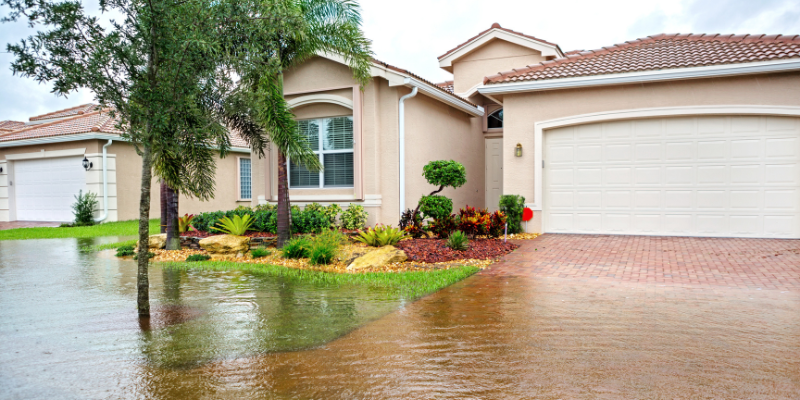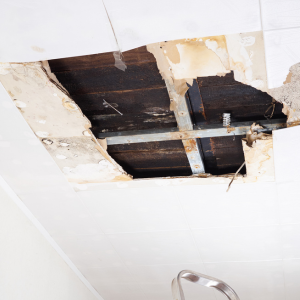
Understanding the Real Estate Market for Damaged Properties in Connecticut
Understanding the Connecticut real estate market requires recognizing the challenges and opportunities presented by dominion water-damaged houses. The state’s real estate market is diverse and has varying demand depending on the region; therefore, local market conditions are significant.
Usually, homes with water damage scare off buyers due to the repair costs and the headaches that come with them. Either way, such homes also create opportunities for investors looking for fixer-uppers or ambitious homeowners willing to take on some renovations. In Connecticut, experts in distressed properties can assist enormously in devising marketing and pricing strategies for homes with damaged furnishings and areas with water stains or flooding, exposed raw furniture, damaged furniture, and raw, undeveloped, or unfinished spaces.
The property must be inspected thoroughly to ensure the damages are sufficiently captured and to obtain accurate repair estimates, which are vital in determining price. Furthermore, highlighting the completion of certain repairs or upgrades increases buyer confidence.
Appropriately adjusting your strategies to these circumstances will spare you the difficulties of marketing a water-damaged property within Connecticut’s real estate landscape. For expert guidance tailored to your situation, contact us today.
Can I Sell a House with Water Damage?
Attempting to sell a home with water damage in Connecticut’s real estate market can be difficult, but the right approaches can make it work. First, trust and transparency are cornerstones in every business deal, so revealing all the facts around water damage to prospective clients will go a long way.
An expert inspector can help evaluate the extent of the damage and provide a report that can be disclosed to interested parties. Consider completing some repairs to reduce the water damage and enhance the property’s presentation to improve its market value.
Showcasing the repairs or improvements made as part of your marketing efforts helps assure potential cash home buyers in Hartford and other cities in Connecticut of the home’s condition. Additionally, framing the price of your home correctly is crucial, so check out the listings and even consider those sold in Connecticut, even if they had water damage.
Having a trusted local real estate professional is invaluable, not only because they grasp the key intricacies of the market but also because they can add much value to a bargain. If these strategies are applied, selling a house in Connecticut with water damage is possible.
Understanding the Costs of Selling a Water-damaged House in Connecticut
Understanding the expenditures needed is essential for a Connecticut homeowner attempting to capitalize on selling a water-damaged property in the local real estate market. The process often begins with assessing the scope of water damage, which could be a simple fix or a complex issue involving significant corrective work.
Property owners must consider the inspection condition and its associated fee, which may include some requisite repair work or renovations. Due to Connecticut’s excessive humidity, contractors and mold removal experts are necessary, as they are often quite costly.
Moreover, sellers might have to pay to obtain permits associated with any substantial repairs they decide to undertake. Other legal costs might also arise if further documents related to the property’s condition must be presented due to disclosure obligations.
When developing pricing strategies, these costs are incurred when competing for buyers who are reluctant to spend on a damaged property. Some advertising strategies may need to pivot towards the honest portrayal of the property’s history, focusing on windfalls in the renovations or upgrades for health and comfort.
An insights seller’s cost aids him/her in navigating the Connecticut real estate market, even with the hurdles water damage brings, captivating buyers nonetheless.
How to Sell a House with Water Damage?

Step-by-Step guide in selling your house with water damage:
- Assess the Damage Professionally
– Hire a certified inspector to evaluate the full extent of the water damage. A detailed report provides transparency and builds trust with potential buyers. - Document the Damage and Repairs
– Keep records of all inspections, damage, and repairs or mitigation steps. This documentation is essential for disclosures and negotiations. - Make Repairs Where Feasible
– Complete repairs that will improve the home’s appeal and value, if financially possible. Focus on fixing structural or safety-related issues first. - Adjust Your Pricing Strategy
– If repairs aren’t practical, price the property accordingly. Research comparable homes in Connecticut’s market to determine a fair, competitive asking price. - Emphasize Strengths in Marketing
– Highlight any improvements made after the damage and showcase features that make your home desirable. Be honest, but focus on potential. - Use High-Quality Listings
– Invest in professional photos and write a detailed, compelling description. Emphasize the home’s potential and its location benefits. - Work With an Experienced Agent
– Choose a real estate professional familiar with selling damaged properties. They can effectively guide pricing, disclosure, and negotiation strategies. - Prepare for Negotiations
– Be upfront about all known issues and flexible with concessions like covering part of the buyer’s closing costs. This can help close the deal faster.
Valley Residential Group LLC can help you navigate the legal steps and ensure you follow all requirements for selling your house with water damage.
Are the Sellers of a House Liable for Repairs After the Closing?
In the state’s real estate market, sellers often question their exposure to repair liability post-closing, particularly when selling a water-damaged property. Upon completion of the property transaction, liability generally rests with the seller only to the extent specified in specific agreements.
Typically, these terms outline the disclosure obligations and contingencies of the purchase agreement. In some remaining circumstances, a seller may incur liability after the sale, for example, if he deliberately conceals a material defect from a water leakage or does not explain damage issues that he knows will relate to buyers’ concerns.
Therefore, it’s crucial for sellers to be transparent about the property’s condition and include all known defects in the disclosure form to avoid post-closing liabilities. Investor home buyers in New Britain and surrounding cities in Connecticut are encouraged to conduct thorough inspections before closing to ensure they are fully aware of any existing water damage issues.
By understanding these liability aspects, sellers and buyers can navigate Connecticut’s real estate market more effectively and minimize potential disputes related to water-damaged properties.
What Do You Have to Disclose When Selling a House in Connecticut?

When selling a water-damaged home in Connecticut’s real estate market, it’s crucial to understand the state’s disclosure requirements. Connecticut law mandates that sellers provide prospective buyers with a Residential Property Condition Disclosure Report.
This report must include detailed information about known property issues, such as water damage, structural problems, or mold infestations. Sellers are legally obligated to disclose any history of flooding or leaks that have impacted the home’s integrity.
Transparency about water damage is not only a legal requirement but also builds trust with potential buyers and can prevent future legal disputes. Additionally, disclosing repairs or remediation efforts undertaken to address water-related issues is essential for compliance with Connecticut real estate regulations.
By providing comprehensive and honest disclosures, sellers can effectively navigate the complexities of selling a water-damaged home in Connecticut while ensuring they adhere to all necessary legal obligations. This is also true for homeowners’ insurance when selling your house, as understanding coverage and disclosure requirements is key to avoiding future disputes.
Do You Have to Disclose Water Damage When Selling a House?
When selling a water-damaged house in Connecticut’s real estate market, it is crucial to understand the legal requirements for disclosure. In Connecticut, sellers must disclose any known defects, including water damage, in the property condition disclosure form.
Failing to disclose water damage can lead to legal repercussions and potential lawsuits from buyers who may discover the issues post-purchase. Complete transparency about water damage complies with Connecticut’s real estate laws and builds trust with potential buyers, potentially leading to a smoother sales process.
Sellers can mitigate buyer concerns and negotiate more effectively by being upfront about water damage and remediation efforts. Disclosing water damage allows sellers to present their property honestly while highlighting its strengths and potential for improvement in Connecticut’s competitive real estate market.
How Much Does Water Damage Affect Home Value?

Water damage can significantly impact a home’s value, especially in Connecticut’s competitive real estate market. The extent and location of the damage must be considered when assessing the extent to which water damage affects home value.
Even minor water issues can lead to substantial decreases in property value if not addressed promptly and effectively. Potential buyers often perceive water-damaged homes as high-risk investments due to possible structural problems, mold growth, and future repair costs.
As a result, sellers might need to lower their asking price or offer incentives to attract buyers willing to undertake necessary renovations. Additionally, the stigma associated with water-damaged properties can linger, further complicating sales efforts.
To mitigate these effects, homeowners in Connecticut should focus on comprehensive repairs and transparent communication about remediation efforts when listing their property. Professional inspection reports certifying that all water damage has been appropriately addressed can also help reassure prospective buyers and preserve home value in the long term.
Is It Worth Buying a House with Water Damage?
Potential buyers must weigh several critical factors when considering whether to buy a house with water damage in the Connecticut real estate market. Water damage can significantly impact a property’s structural integrity and resale value.
However, savvy investors may see this as an opportunity to acquire a home at a reduced price, particularly in competitive markets like Connecticut. It’s essential to conduct a thorough inspection to assess the extent of the damage and estimate repair costs.
Partnering with experienced contractors familiar with water restoration can help determine if the investment will be profitable. Additionally, understanding local market trends is crucial; some areas in Connecticut might have high demand for renovated homes, making water-damaged properties more appealing after repairs.
Buyers should also consider potential insurance challenges and ensure adequate coverage for existing issues and future protection against water-related incidents. Ultimately, purchasing a water-damaged home can be worthwhile if approached with due diligence and strategic planning within the dynamic landscape of Connecticut’s real estate market.
Can You Sue a Previous Homeowner for Water Damage?
One common question about water damage in the Connecticut real estate market is whether you can sue a previous homeowner for undisclosed water damage. In Connecticut, real estate transactions are typically governed by disclosure laws that require sellers to inform potential buyers of any known issues, including water damage.
If you discover significant water damage after purchasing a property, and the previous homeowner did not disclose it, you may have legal grounds to pursue a lawsuit. The key factor in such cases is proving that the seller was aware of the water damage and intentionally failed to disclose it.
Consulting with a real estate attorney familiar with Connecticut’s disclosure laws is crucial to determine if you have a viable case. Additionally, reviewing the property inspection reports and any communication related to the sale can provide evidence that supports your claim.
Successfully navigating these challenges requires understanding your rights as a buyer and taking timely legal action if necessary.
Do you need to sell your home? Sell quickly, avoid costly repairs, or prefer a hassle-free sale. Valley Residential Group LLC is here to help. We offer fair cash offers, handle all the details, and make the process seamless. Ready to sell or have questions? Call us at (860) 589-4663 for a no-obligation offer. Get started today!
| FLOODS | FLOODED | FLOODING | INSURANCE | INSURANCE CLAIMS | INSURANCE COMPANIES |
| HOMEOWNER’S INSURANCE | HOMEOWNERS INSURANCE | HOME INSURANCE | INVESTORS | FLOOD INSURANCE | MOLD PREVENTION |
| DRYWALL | INFORMATION | CASH | ROOF | HOMELIGHT | EMAILS |
| WARRANTY | SMS | LEAKS | DEHUMIDIFIERS | DEHUMIDIFY | SALESPERSON |
| POLICY | HOMEBUYERS | NATURAL DISASTERS | MORTGAGES | MONEY | MARKET VALUE |
| INSURANCE POLICY | HEALTH | REAL ESTATE INVESTOR | APPRAISAL | GUTTER | PLUMBING |
| NEGOTIATIONS | ATTORNEY | HOME INSPECTOR | HOME INSPECTION | FAILURE | RUGS |
| CARPETS | BLOG | BASEMENT | APARTMENTS |
Helpful Connecticut Blog Articles
- Cost To Replumb Your Connecticut Home
- Sell Your Connecticut Home With A Reverse Mortgage
- Best Time to Sell a House in Connecticut
- Selling a Water-Damaged House in Connecticut
- Selling a House With a Tax Lien in Connecticut
- Attorney Fees for House Closings in Connecticut
- Selling A House With Foundation Issues In Connecticut
- Selling A Fire-Damaged House In Connecticut
- How To Successfully Sell A House With A Lien In Connecticut
- Understanding The Taxes On Selling Your Home In Connecticut
- Cost to List on MLS in Connecticut
- How to Claim Ownership of Abandoned Property in Connecticut
- How to Sell an Inherited House in Connecticut
- How Long Can Seller Stay in House After Closing in Connecticut
- Can the Seller Back Out of a Real Estate Contract in Connecticut?
- Does a Seller Pay Closing Costs in Connecticut?

